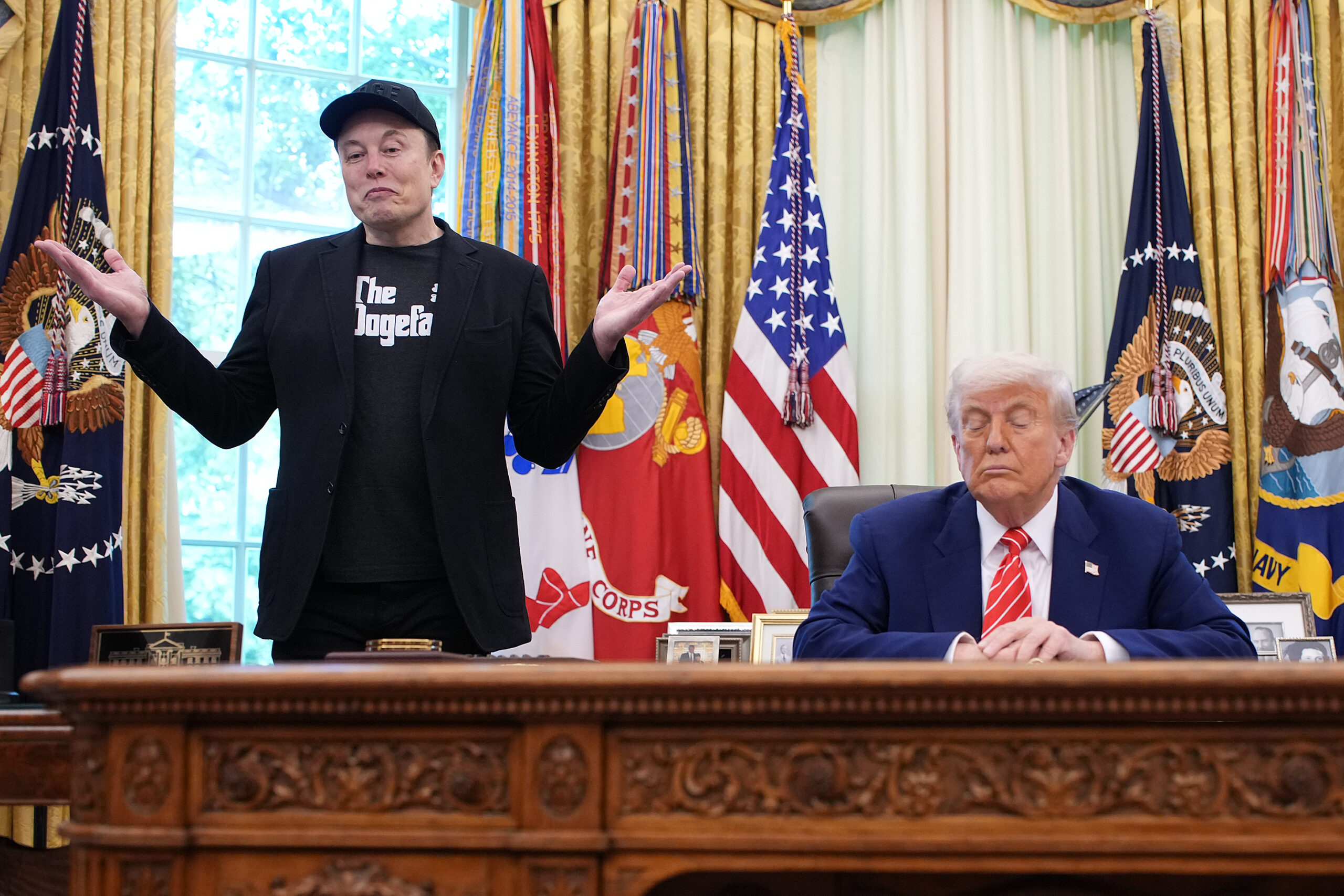The biggest breakup in recent political history — between the world’s most powerful man and the world’s richest person — moved at hyper speed, with new threats and gut punches piling up by the minute. The fight touched on all manner of topics including tariffs, Donald Trump’s “big beautiful bill” and its slashing of EV mandates, Elon Musk’s government contracts and subsidies, a push for impeachment and even the formation of a third political party.
But missing from the feud and the media reaction was any sense of the massive impact Trump and Musk have had on the lives of millions of people here and abroad.
Since it launched in January, the Department of Government Efficiency has been tearing through government, laying off more than 280,000 government workers, shutting down agencies like the U.S. Agency for International Development and cutting the budgets of agencies including the National Institutes of Health, the Food and Drug Administration, the Centers for Disease Control and Prevention, the Occupational Safety and Health Administration and the Environmental Protection Agency to the bone in ways that undermine public health, scientific research, food safety, worker safety and health and environmental protection.
The swiftness of the cuts caught even Trump supporters by surprise. Among them was veteran Chauncy James, who voted for Trump and was laid off from his government job a few months later despite having been promoted twice. Now he worries about paying his mortgage and feeding his family, telling Reuters: “They are pretty much just coming here, chopping heads off, without really doing their homework … He got elected president and he’s doing a lot of things that people never even imagined that he was going to do to us.”
Overall, the largest impacts have been to the lives of the poor and vulnerable, including children, seniors, disabled people, veterans and working families, as documented in Capital & Main’s DOGE Impact Tracker since February.
The elimination of USAID, the largest source of international assistance to more than 120 countries through food programs, clean water initiatives and infectious disease outbreak response, has already led to the deaths of more than 319,000 people, including 216,000 children, according to Brooke Nichols, a mathematician and professor of infectious diseases at Boston University. “These are 100% preventable deaths,” Nichols told The Times of London. “They all happened because of the abrupt halt in funding.”
DOGE’s cuts to the Department of Agriculture ended $1 billion in funding for hundreds of food banks that feed a growing population of Americans who can’t afford groceries. They also hurt farmers who depend on federal reimbursements to stay afloat.
The termination of nearly $400 million in funding for AmeriCorps, a decades-long program with strong bipartisan support, has had a negative impact on neighborhoods across the country, where the program’s volunteers performed community service and assisted with education, disaster response and environmental stewardship. More than 100 grants were cut in states with the highest poverty levels — Louisiana, Mississippi, Arkansas, Kentucky, West Virginia, New Mexico, Oklahoma and Alabama — according to CBS News. (The cuts were temporarily blocked on Thursday by a federal judge.)
Veterans are universally praised by lawmakers, but the Department of Veterans Affairs hasn’t been spared the axe, with DOGE planning to cut 20% of the department’s staff. DOGE’s firing of thousands of the agency’s probationary employees in February was reversed when the VA was forced to rehire employees a month later, but the disruptions caused longer waiting times for appointments and interrupted staffing for a suicide hotline. And veterans say that the agency has slowed down hiring of new staffers, leaving it incapable of properly caring for veterans with physical and mental health problems.
DOGE cuts at the Department of Health and Human Services resulted in closures of Head Start offices, and cuts at the Department of Education resulted in the termination of programs for learning-disabled students. Reduced staffing at the Social Security Administration has hurt seniors due to delays in processing benefits. And a 40% reduction in staff at the Administration for Community Living has impacted programs like Meals on Wheels and other services that help the disabled and poor.
The stunning breadth of the impacts on both the nation’s and the world’s most vulnerable strikes home for Carolyn Woo, the former CEO of Catholic Relief Services, a humanitarian agency that was the biggest recipient of USAID funding and has been forced to lay off workers and halt programs.
“I think about the power of healing, the fact that we could make a malnourished child, who at 2 years old is only 19 pounds, and restore that person to health. Or we could administer therapy to allow people with AIDS, which used to be a death sentence, to live. The power to have that much impact on life, that is real power. Power is not just in firing someone, but the power to restore life to someone.”
She says that the DOGE cuts to USAID and other programs remind her “of real suffering and to not close our eyes to it. All of us could be kinder, could be more generous. We could open our eyes and we could provide help … the power to be decent, to be trustworthy, to be honest, to take care of each other, the people who make other people better — that is real power.”
Copyright 2025 Capital & Main


 The SlickJanuary 23, 2026
The SlickJanuary 23, 2026
 The SlickJanuary 27, 2026
The SlickJanuary 27, 2026
 Column - State of InequalityJanuary 29, 2026
Column - State of InequalityJanuary 29, 2026
 Latest NewsFebruary 3, 2026
Latest NewsFebruary 3, 2026
 Dirty MoneyJanuary 30, 2026
Dirty MoneyJanuary 30, 2026
 Featured VideoFebruary 4, 2026
Featured VideoFebruary 4, 2026
 The SlickFebruary 2, 2026
The SlickFebruary 2, 2026
 Column - State of InequalityFebruary 5, 2026
Column - State of InequalityFebruary 5, 2026

